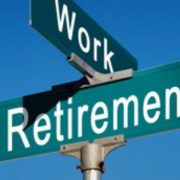What happens when retirement does not go to plan?
We have written on numerous occasions over the last few years of the need to plan carefully for your retirement – financially, emotionally, physically and mentally.
What happens if it does not go to plan, not from a financial aspect but from a health perspective?
What am I talking about?
I have observed two people close to me, a good friend and a brother in law prepare for their retirement and then retire with their first years of “freedom” or “my time” planned.
Both men were in good health and had always been very active. This continuing and increasing level of activity was an integral part of their retirement – competing and training for an Ironman race and a number of endurance bike rides. As both have now retired, finding time to fit in all the necessary training was not an issue. They were excited and looking forward to the challenge.
Both men were diagnosed with “arrhythmia”, palpitations of the heart.
I have no medical qualifications and I am not going to attempt to explain the symptoms, consequences of this diagnosis or the treatment. All I do know from my own observations of these friends was that their training now needed to be curtailed and the initial ongoing treatment, although not necessarily painful, was incredibly frustrating from their point of view.
Understandably, both were upset and feeling sorry for themselves – all the plans and hopes they had for the first few years of their retirement had been disrupted.
So what is the answer?
I did do some reading, and there are a number of common processes which people can take when life’s plans go a little astray
- Step back and understand that aside from this one glitch their lives are in fact generally quite great – never dwell on the question of “Why me?”
- Moping is not allowed. Sit down, reassess your plans and then attack them with the same vigour. Get busy!
- Understand that your plan does not define who you are. The people who surround you still love and respect you.
- Accept your limitations and reassess the plan or activity- in this case taking into account the issue
I am not saying that this is the answer, and I do know that if I were in the same situation and someone quoted these to me I would be extremely sceptical.
However, I believe it is important to remember that retirement is a 20 to 30 year period of your life and to become self-observed and continue to ask the question of “why me” is not going to make this part of your life any more enjoyable.
Source: Mark Teale | Centrepoint Alliance









